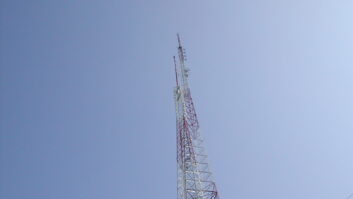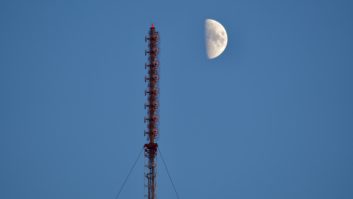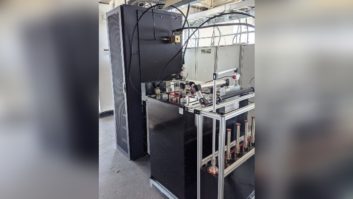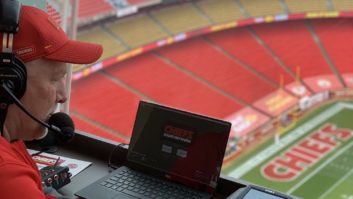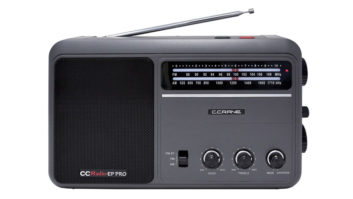
I’d been on radio for only three years when I received my first invitation to appear on television as guest host of a late-night movie.
Aside from being nervous, I felt that the appearance might be beneficial for my radio station and me, so I said yes. It turned out that I was host for one of the worst movies ever made, “They Saved Hitler’s Brain.”
I figured nobody would be watching. But for several years after, people came up to tell me they remembered several — incredibly stupid — jokes I’d told.
When television personalities appear on radio, you will hear them share similar stories about how people heard them on the air and remembered something they’d said. The personalities seemed surprised at the impact of the medium.
I bring all this up because the synergy between radio and television is a natural one. There are many ways in which your radio station can take advantage of partnerships.
Practical considerations
Like any partnership, an agreement between a TV outlet and a radio station works best when the entities have a solid personal relationship.
If the general managers know and like each other, the process can move efficiently and quickly, because a certain measure of trust exists. If the GMs don’t know each other, it’s still possible to move forward at a marketing or programming level.
Start with a discussion of promotional spot trade. This will be simple because you both already have a rate card for commercials and neither of you sells all of your inventory. While the spots must be preemptible, every effort should be made to clear reasonable requests.
If you don’t have a commercial ready for television, it will be necessary to have the station create a spot for you, so be sure to factor the production cost into your trade agreement.
A word about scheduling your spot on television: Seek those periods of the year when you can run lots of frequency and you’re not competing for good time slots with retailers.

Device by iStockphoto
For example, January is typically a great month to be on TV because retailers are resting from their huge November and December, while lots of viewers are at home during the cold months watching.
Keep in mind that TV has advertising assets outside of spots that can be useful for you. For example, the crawls on the bottom of the TV screen could contain your promotional tune-in announcements. They also have segment sponsorships, which can highlight your station and perhaps your morning show: “Sports is brought to you by SportsRadio 1010 featuring ‘Mike & Bob in the Morning.’”
Share alike
After concluding the on-air trade, discuss a content share.
Perhaps one of your DJs can be interviewed once a week about music, entertainment or movies on one of their newscasts. Don’t shy away from this just because he’s not an expert. Today, it can be as simple as the DJ discussing what people are saying about a new song or movie on Twitter.
In return, invite one of the TV folks onto your morning show to talk about sports, weather or news.
Sure, you can do this every day; but if you’re considering one talent in particular to execute a segment, be prepared to get out the wallet. Few TV talents will work regularly on radio without compensation.
Events are next on your hit list, with revenue as your mutual goal.
Can you partner to concoct a fitness and health fair; a home and garden show; or a big boys’ electronic toys show? Personalities from each of your stations can be the featured celebrities. You can agree on promotional schedules to advertise the event jointly. You will share some advertisers, so if you want to approach any of them, you should do that together. Otherwise, create a sales incentive in which the organization bringing in the client receives 60 percent of the action.
Is there anything you can do together online with your websites, Facebook pages, Twitter accounts and mobile applications?
The key to all of this is to get started. Beginning is the most difficult thing to do. Once you get rolling, many things can happen organically.
The tough parts are making the initial contact, having the meetings, building a plan and then executing the vision. Those who have the determination to make it happen will reap the rewards of growing ratings and revenue.
The author is Radio World’s Promo Power columnist and president of Lapidus Media. Contact: [email protected].






